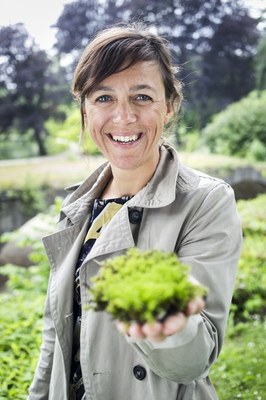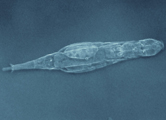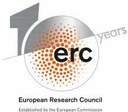Karine Van Doninck
Research

One of the main interests of the Karine Van Doninck lab is to tackle fundamental questions related to the evolution of asexual reproductive modes and to understand the factors contributing to genomic variation and adaptation.
 The model systems are the bdelloid rotifers and the Corbicula clams, employing two different modes of asexual reproduction. Rotifers from the Class Bdelloidea are common microscopic metazoans that appear to be obligate ancient asexuals (“all-female asexuality”). They have a worldwide distribution, occurring preferentially in ephemerally aquatic habitats such as mosses and lichens because they can survive desiccation at any stage of their life cycle. Within the clam genus Corbicula, several invasive freshwater lineages found both in America and Europe appear to reproduce through androgenesis, a form of “all-male asexuality” in which the maternal nuclear genome fails to participate in zygote development. All the descendants are therefore paternal nuclear clones.
The model systems are the bdelloid rotifers and the Corbicula clams, employing two different modes of asexual reproduction. Rotifers from the Class Bdelloidea are common microscopic metazoans that appear to be obligate ancient asexuals (“all-female asexuality”). They have a worldwide distribution, occurring preferentially in ephemerally aquatic habitats such as mosses and lichens because they can survive desiccation at any stage of their life cycle. Within the clam genus Corbicula, several invasive freshwater lineages found both in America and Europe appear to reproduce through androgenesis, a form of “all-male asexuality” in which the maternal nuclear genome fails to participate in zygote development. All the descendants are therefore paternal nuclear clones.
We seek to understand what mechanisms underlie the adaptability in the absence of sexual reproduction. We employ different tools (fieldwork, animal cytology, molecular biology, comparative genomics and bioinformatics) to study evolutionary processes at the level of populations, both experimental and natural, and genomes in both animal systems.
Besides, we conduct a few studies in conservation genetics. More specifically, we investigate the geographic expansion of species (invasive exotic species or native species regaining territories) seeking to understand the dynamics of colonization and their impact on native species or ecosystems.
A Prestigious grant
Karine Van Doninck was awarded an ERC Consolidator Grant starting (June 2017) for her RHEA project: “Rotifers Highlight Evolution of Asexuals”. Get the press release (French version, UK version).
Positions are open for Post-Docs and Ph.D students.
Her NARC fellowship started on 15 July 2015 and finishes on 14 July 2020.
Contact : Karine Van Doninck
Other memberships
 |
|---|














